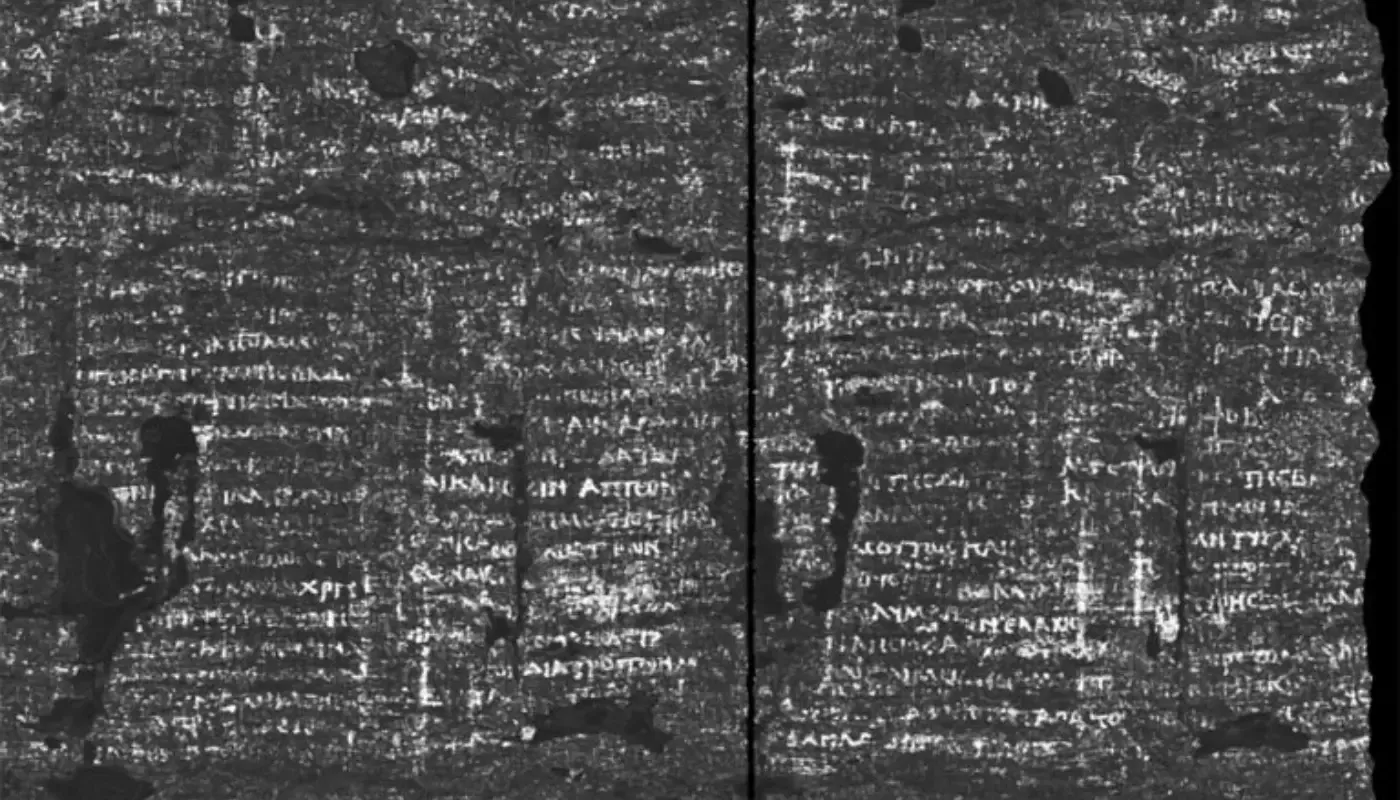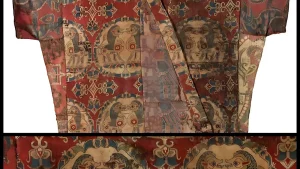
In the year 79 AD, the eruption of Mount Vesuvius completely buried the city of Herculaneum in Italy under volcanic ash, destroying many cultural treasures. Nearly two thousand years later, scholars have succeeded in opening a new chapter in history — for the first time, the author of a burned ancient scroll and the title of the work have been identified.
This discovery was made with the help of artificial intelligence. It has been determined that this scroll is a philosophical treatise titled "On Ills and the Virtues Against Them," written by the Epicurean philosopher Philodemus.
The manuscript was found in one of the ancient villas in Herculaneum — possibly belonging to a philosophical school or a wealthy individual. After hundreds of years, it was brought to the Bodleian Library at the University of Oxford, where it remained unopened until now. The reason is that the scroll is so delicate and fragile that even touching it could lead to its complete destruction.
In such complex conditions, modern technologies — artificial intelligence, high-resolution X-ray tomography, and special 3D modeling techniques — came to the rescue. Specialists working within the Vesuvius Challenge project analyzed the microscopic traces of carbon ink in the manuscript and succeeded in "opening" the text virtually.
The Volume Cartographer program developed by scientists at the University of Kentucky played a crucial role in identifying the letters and words in the text, organizing them, and facilitating the reading process. This program allowed for the virtual reconstruction and analysis of each line in the scroll.
The identified text is a treatise attributed to Philodemus, serving as a philosophical guide urging individuals to avoid various vices and live a life of virtue. It thoroughly discusses themes such as spiritual purity, living with moderation, and controlling emotions through understanding.
According to the scholars, this advanced technological approach may pave the way for reading several other burned scrolls and texts stored in the Herculaneum library in the future. Currently, dozens of similar scrolls are waiting in line — each of them has the potential to open a new page in human history.
The rapid development of science and technology is enabling modern scholars not only to create the future but also to uncover the guarded secrets of the past. The history buried under Vesuvius has begun to speak — and these words urge us to think, appreciate, and understand.




